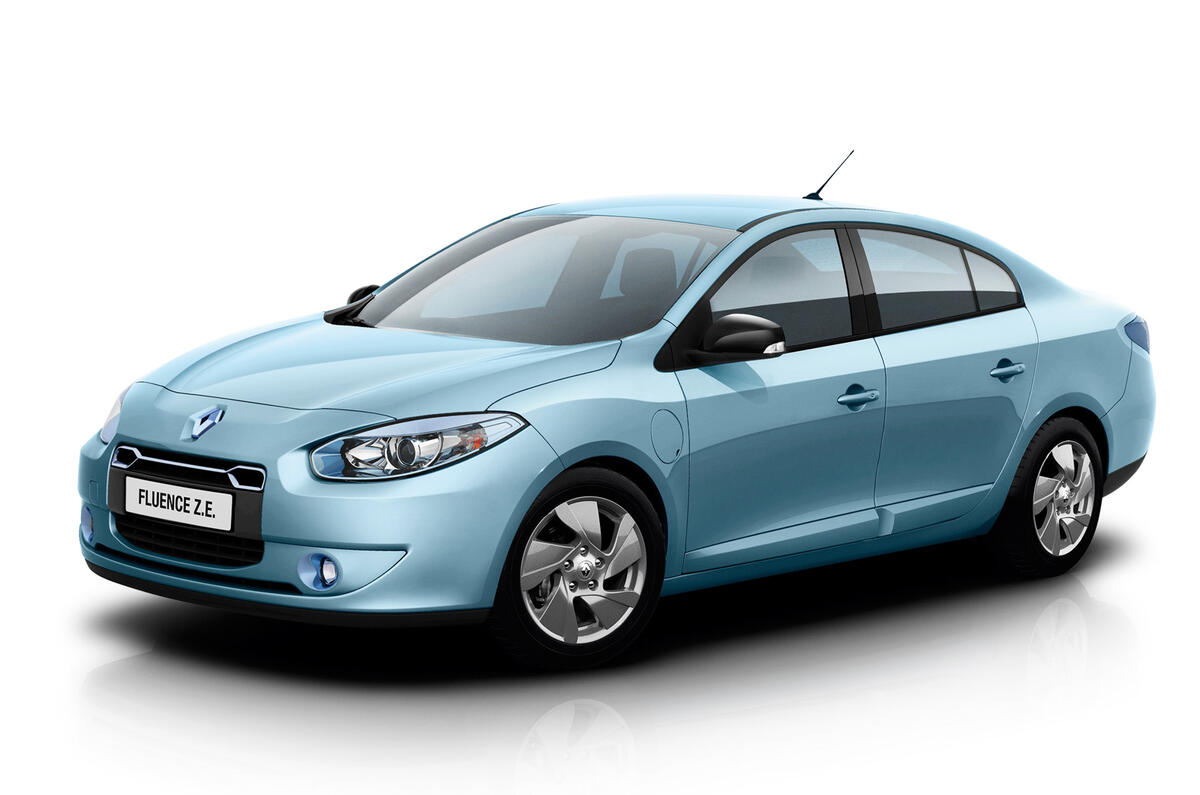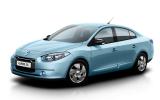What is it?
This is the most conventional of Renault’s four electric vehicle offerings, a Focus-class four-door saloon complementing the Zoe hatchback, the Kangoo van and the Twizy city car.
An electric conversion of the conventional Fluence, it’s propelled by a 94bhp electric motor delivering a stout 167lb ft of torque through a single speed gearbox. Renault is making no claims for the 0-62mph sprint yet, but it has an 87mph top speed.
The Fluence’s body has been slightly lengthened to house the 250kg lithium-ion battery packed behind the rear seats, its weight rising 50kg to top 1453kg. The batteries have a claimed range of 100 miles, and can be recharged in around six to eight hours from a domestic power supply, quick-charged from a three-phase fast-charge supply in 30 minutes or by using Renault’s Quickdrop infrastructure, which will allow the battery to be swapped for a fully charged pack in three minutes.
That said, there will be few Quickdrop stations in France to start with – there only will be a couple in Paris by 2011 - while Britain is an unknown.
What’s it like?
Paris was where we sampled this prototype Fluence, which is almost limo-like in its serenity besides being smooth, brisk and simple to drive.
As impressive as any of this is the feeling that this prototype was close to the finished thing, its electrically-powered air conditioning fully functioning, its instrument pack looking production ready. The floor-mounted transmission lever is all you need move once you’ve twisted the key to power up, selecting drive producing the same creep that you’ll encounter with a conventional automatic.
Tread the accelerator and the Fluence steps away briskly, but with a calming silence that makes negotiating heavy traffic a more restful experience, not least because the powertrain is so quiet – there’s no milk-float whine.
Yet despite this calm the Fluence is more than capable of getting ahead in traffic, a firm stab at the accelerator producing enough thrust to have its front tyres screeching for grip.
Release the throttle, and you’ll notice more deceleration-effect than you’ll find in most cars as battery regeneration kicks in, although this is nothing like as pronounced as it is in the Mini E. But it still provides the entertainment of determining when you should lift off to come to a rest at the next obstacle without touching either brake or accelerator, a pusuit that also saves energy.
The elephant-in-the-room issue – range – certainly impinges, because you have only 100 miles, but the distance to recharge indicator seemed to fall slowly as we edged through traffic, and with accuracy too, the six kilometer drop matching the distance we actually covered.
If the Renault’s power delivery is immensely refined, bar an occasional soft jolt as you move off, its ride is less so. There’s more jostling over bumps than there ought to be, and although there wasn’t much scope for speeding about on this test, it seems likely that the 250kg battery pack will make itself felt when you’re hard-charging a bend.
Should I buy one?
Renault says that the Fluence will cost around £19,000, with £85 of monthly battery lease costs to pay on top – pretty reasonable considering its advanced technology and the very low running costs that owners will enjoy. Its biggest drawback is that 100 mile range, which makes it vastly less versatile than a conventional car.



















Join the debate
Add your comment
Re: Renault Fluence Z.E.
What just like diesels well less WRC :o)
Re: Renault Fluence Z.E.
Hybrid batteries do not take on the same load and recharge cycles as an EV car. Battery technolgy is good but in escence cars are using the same tech as a laptop or mobile phone to store electricity. Factor in temprature issues and it will take a few years to understand fully how reliable and how they fair in day to day use.
As for electrics they can and will go wrong we have had electric trains for years and they break down even newer ones 9 times out of 10 it is due to software or sensors!!! EV car's will most probably suffer electrical issues just like any other car that is on the road as the basic systems are the same just the engine and drivetrain will differ. But even electric motors are not 100% reliable and in the hands of a more spirited driver will they be any more robust or not only time will tell...........
Re: Renault Fluence Z.E.